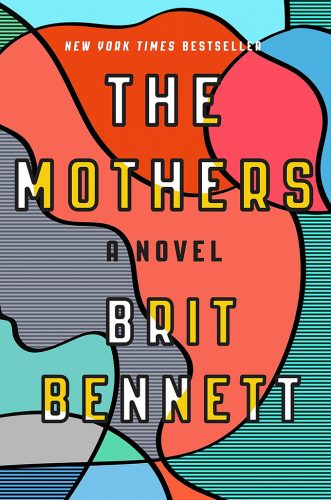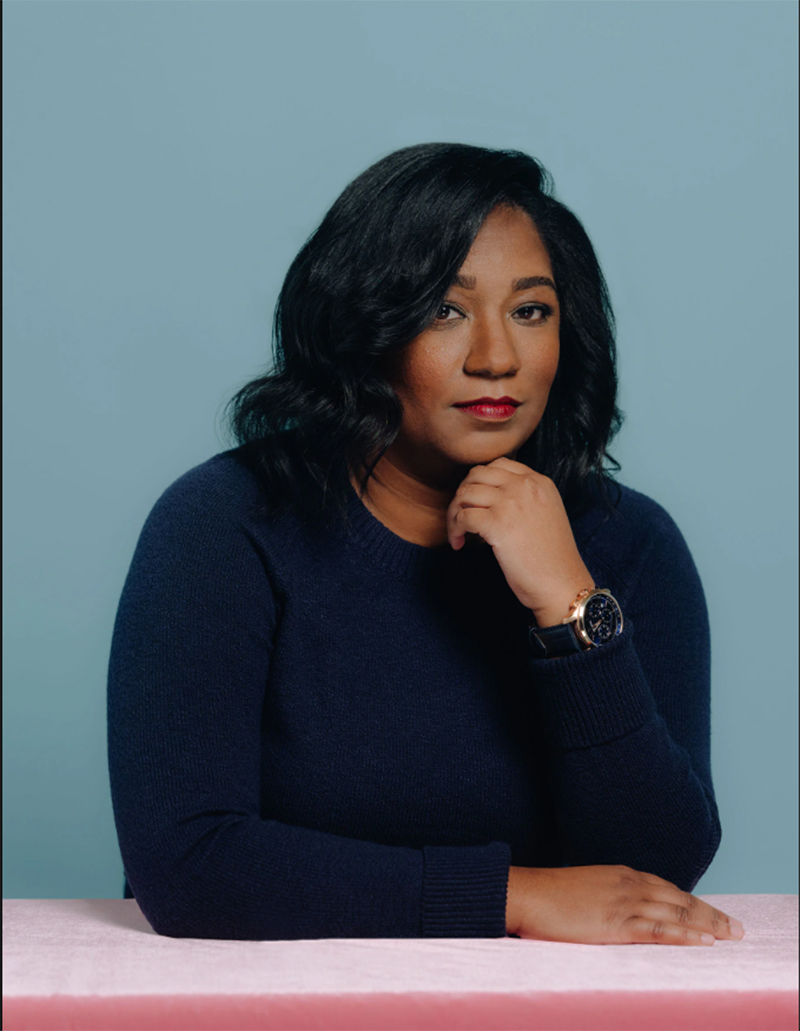Sisterhoods and motherhoods are complicated affairs, filled with love and joy as well as chaos and betrayals. The Mothers by Brit Bennett is a book that shows these complex relationships by following the lives of three young African Americans and exploring how their connections with their mothers – biological, adoptive, or just the elderly church women who call themselves “The Mothers” – shape their futures in the wake of events from one eventful summer.
“All good secrets have a taste before you tell them, and if we’d taken a moment to swish this one around our mouths, we might have noticed the sourness of an unripe secret, plucked too soon, stolen and passed around before its season. But we didn’t. We shared this sour secret, a secret that began the spring Nadia Turner got knocked up by the pastor’s son and went to the abortion clinic downtown to take care of it.” – p. 2

As the summer drags on, Nadia’s father forces her to accept a summer job as Mrs Sheppard’s assistant. While working, she forms an unlikely friendship with Aubrey, a schoolmate and church member she once dismissed but in whom she finds kindship once she learns of their shared motherlessness.
Life moves on for all three of these young people. Nadia goes to college, Luke finds and loses community before settling into his own career niche, and Aubrey falls in love and strives to become the mother she never had. But when circumstances bring the trio together again, the events of that fateful summer resurface, haunting them, their families and the church in ways they never imagined.
The All-Seeing Eyes of the Church
One of the things that stood out to me instantly about The Mothers was its narrator. Rather than having a neutral omniscient presence objectively narrating the events in the novel, Bennett employs a subjective narrator – a nameless member of the elderly church ladies called The Mothers – to give us a sense of what happens throughout the novel and why.
At the beginning of each chapter, this Mother gives us an opinionated glimpse into Nadia, Luke and Aubrey’s lives and history. She intermingles these details with her own experiences, church gossip or personal witness. Her voice gives the story a judgemental tone, which adds to the overall richness of the novel.
But as Bennett points out in a 2016 interview with Politics and Prose, while the Mothers may seem collectively all-seeing and all-knowing, they are not all-understanding. While they do have centuries’ worth of knowledge and experience among them, their reliance on gossip, a dated understanding of the world, and their collective fear of change make them problematic at the very least, or openly malicious at worst. They brandish their flawed moral authority and withhold their empathy for younger congregation members, choosing instead to offer it to people closer to their age. Their apathy toward youth and sympathy for themselves and other elders inadvertently exacerbate some of the issues in their church.
One notable example early in the book is the way they react to Nadia versus the way they react to her father when Nadia drives home drunk and crashes his truck into the tree on their front lawn. In the previous chapter, the narrator showed us how much her mother’s death emotionally destabilised them both. But after Nadia’s crash, The Mothers harden their hearts against her. “We only felt sorry for Robert Turner,” the narrator recalls on pages 39-40, “He’d already been through so much”. First a dead wife, and now a “wild” and “reckless” daughter, they lament. As the book continues, The Mothers’ contempt for Nadia grows, and they make no effort to help her shoulder her grief, so she learns to struggle with it alone. This is just one of the ways the women in this novel hurt each other.
Mothers Good and Bad
Apart from the church mothers, Nadia, Aubrey and Luke each have their own issues with mothers and motherhood.
From the narrator’s account, Nadia had a good mother. So good, in fact, that Aubrey later admits that she thought that they were the picture-perfect, quintessential American nuclear family and longed to be like them someday. We also learn from their recounting that her mother did try to do what was best for Nadia. After she dies, the congregation keeps dropping hints that they have condemned her mother for her choice, which leaves Nadia feeling even more confused and abandoned.
However, something darker was hiding behind the picture-perfect illusion of their family: shame. Nadia’s mother accidentally traumatised her when she was still alive by letting her know that Nadia was unplanned and warning her that getting pregnant as a teenager is the worst thing she could do to the family.
“Don’t end up like I did. That’s the only thing you could do that would break your Daddy’s heart,” she says to Nadia on page 50. This statement later influences Nadia’s decision to have an abortion and haunts her throughout the novel. While her mother’s warning came from a place of love, it is hard for a child to learn that they are, in fact, their mother’s ultimate shame—a mistake that derailed the trajectory of their life and quite possibly, even influenced its abrupt end. All of Nadia’s actions and inaction throughout the book revolves around this one, shattering revelation.
In Aubrey’s case, even though her mother is still alive, she is also motherless. Her mother prioritised her romantic relationships over her children and was even willing to tolerate or overlook Aubrey’s abuse at the hands of her lovers. Thankfully, Aubrey is able to escape this situation and live with her older sister and her girlfriend in California. While there, Aubrey finds new mothers in the church, with Mrs Sheppard and her sister being the most prominent ones.
While still bearing the weight of shame from her abuse, Aubrey reinvents herself in California as a chaste, religious, and family-oriented individual. Unlike Nadia, the church embraces her and aids her recovery. She finds solace in this reinvention and even explores herself a little more once she meets Nadia. As they grow older, she finds herself on the opposite end of the womanhood spectrum as Nadia as she grows increasingly desperate to have a child of her own and is willing to endure as much pain and shame as she can take to make sure she does.
Lastly, there is Luke and his complicated relationship with all of the mothers mentioned above. Luke has a nucleus role in the story. He’s the one who solidifies Nadia’s rejection of motherhood. He’s the subject of much of The Mothers’ gossip. He makes Aubrey feel desperate for motherhood, and his rocky relationship with Mrs Sheppard contributes to some of the stress and distress both women feel. After all, as religious as Mrs Sheppard makes herself seem, she is no saint. She shows that as long as it benefits her outward appearance, she is willing to go against her own beliefs to protect her family and then spin her hypocrisy and unkindness as charity.
What I found most fascinating about Luke as a character, though, is his nuanced reaction to Nadia’s abortion. He respects her decision, but he also mourns the child he lost, even though he knows that if Nadia had chosen to keep the baby, neither he nor she would have the means to care for it, and it would have ended her college ambitions. He’s also deeply unsettled by his mother’s hypocrisy and feels responsible for forcing her to reject her beliefs for his carelessness. This creates a rift between them that continues throughout the book.
Conclusion
The Mothers was both an enjoyable and frustrating read for me. Bennett shows that both the choice to embrace motherhood and the choice to refuse it can be equally messy. There is as much love involved as there is also shame, and it was refreshing to see this so thoroughly and thoughtfully explored on the page. I also enjoyed Bennett’s willingness to show how communities can fail their members through gossip, rumour and withholding empathy, which also shook me a little. In doing so, she holds a mirror up to us all, daring us to examine how we interact with the mothers and mother-figures in our own lives, and demands empathy from us if we fall short.
I’d recommend this book to anyone who is interested in the discussion about the repercussions of the recent overturning of Roe v. Wade in the United States. While this book was written in 2016, it provides a nuanced and objective portrayal of what is at stake for African American women in light of the Supreme Court’s ruling.
Special thanks goes to Chloe of Thistle & Verse, who gifted this book to me last year.
Want to read more of Brit Bennett’s work? Try her latest novel, The Vanishing Half.
You can also scan the QR code below for links to Bennett’s Politics and Prose interview and the Thistle & Verse YouTube channel.







